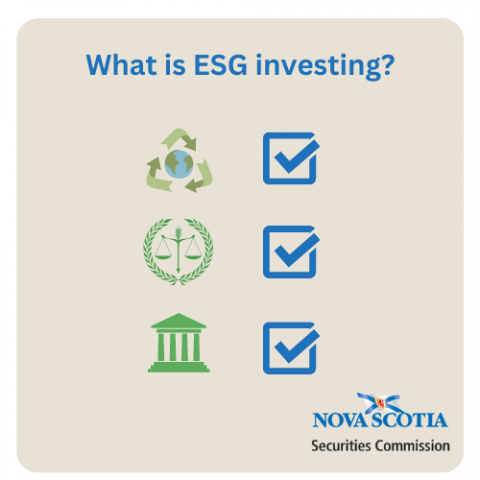Submitted by nsscadmin on

There has been a lot of talk recently in the media and the political sphere about Environmental, Social and Governance (ESG) Investing, both positives and negatives. This blog post does not offer an opinion on ESG Investing. It simply provides background information on what ESG investing is, and how it is currently regulated by Canadian securities regulators to helped investors make more informed choices.
ESG investing is commonly referred to as sustainable investing, or socially responsible investing. ESG investing criteria is a set of standards used by socially conscious investors to gauge a company’s behavior to determine if they are the right fit for investing.
Environmental standards look at how a company safeguards the environment through their business practices. This could include things like their climate change policies, energy usage, waste disposal, pollution rates, natural resources conservation, and treatment of animals.
Social standards look at a company’s relationship with their employees, customers, and the communities in which they operate. This could include only doing business with suppliers and companies that live up to their own social standards, promoting diverse workplaces, working with or donating to charities or non-profit organizations, work conditions that meet high standards for worker’s health and safety, and ethical business practices.
Governance standards look at a company’s leadership and how transparent they are with business practices and decisions. This could include executive pay levels, internal control, diversity among leadership roles, and being accountable to shareholders.
With more investors looking to ESG principals to guide their investments, many ESG investment products and funds have been issued to assist investors. Securities regulators have issued guidance on ESG-related investment fund disclosures which can be found in CSA Staff Notice 81-334.
